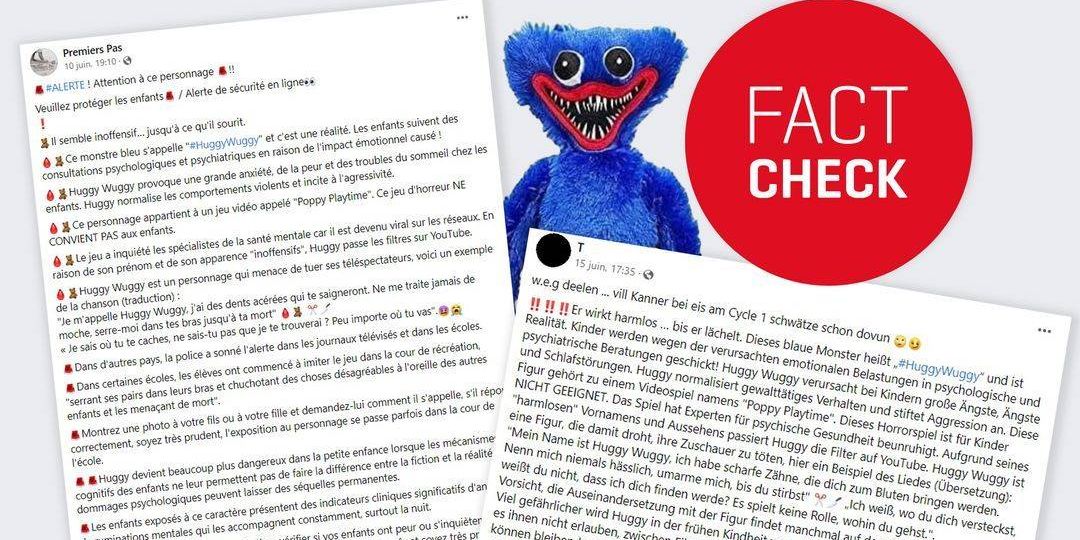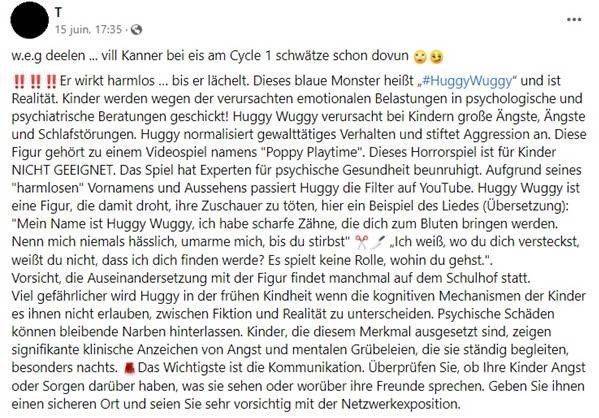
© RTL
A chain of posts about the character “Huggy Wuggy” is currently circulating on social networks. Who is he, and is he a risk to children?
The character Huggy Wuggy is part of the horror and survival video game “Poppy Playtime”. Aimed at children over 12 years of age, anyone can play this game on a computer or a smartphone.
The first articles regarding Huggy Wuggy appeared in the British and American press in April. However, in recent days, chains of messages have been shared and commented on by many Luxembourgish social media users.
There have been no reports to the Bee Secure Helpline yet, but that does not make it less of a problem. This Facebook post for example shows that Huggy Wuggy is being discussed in a school in cycle 1.
 © Screenshot via Facebook
© Screenshot via Facebook
Parents are concerned the character might incite violence against others. In the video game, the blue creature threatens and chases other characters.
Since then, this character has gained a cult following in other videos. Compilations of short films and songs are now available on video platforms.
The following extract can be heard: “Cause I could just hug you here. Forever, forever. Till you breathe your last breath.”
This can be seen as a clear form of violence. Sky News contacted YouTube, which said that such videos would not be found on YouTubeKids, the children’s channel. In the settings, parents can specifically target what their children can and should see or not see.
On the internet, some people believe that the character could cause mental harm to children. There is even talk of psychiatric assistance, which some children would have needed. However, our RTL colleagues have not been able to verify this claim.
It is not a new phenomenon that such content, which can frighten children, is spread on social networks, according to Debora Plein of Bee Secure. A few years ago, the Momo-Challenge caused concern. According to her, it is very important to support children from an early age when they come into contact with new media, especially via smartphones and the internet.
You have to give children the idea that as parents you are the ones to talk to. That when they come across content that frightens them, they can talk to their parents about it, explains Debora Plein.
Should you have any questions about internet safety, you can call the free Bee Secure Helpline (8002 1234).
Most importantly, do not panic. In principle, such phenomena should not be feared, but they should be taken seriously and the handling of information on social networks should be discussed openly.
More information about chain messages and how to talk to children is available on the Bee Secure website.

